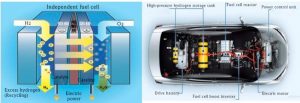Routine maintenance points of special refrigeration units for laboratory instruments
Industrial refrigeration units dedicated to laboratory instruments are used more in the pharmaceutical and chemical industries, and care must be taken when using them.
The daily maintenance of the industrial refrigeration unit dedicated to experimental instruments is mainly reflected in the following aspects:
1. Condenser
The high-temperature and high-pressure Freon of the refrigeration system of the industrial refrigeration unit dedicated to the experimental instrument comes out of the compressor and enters the condenser, releasing a large amount of heat to the cooling medium and being liquefied by the cooling.
If the industrial refrigeration unit dedicated for laboratory instruments has been used for more than half a year, or the high and low pressure engines frequently fail, or the cooling capacity is reduced, please arrange a technician to clean the condenser. The fin condenser is generally cleaned with a high-pressure water gun. Be careful not to clean it sideways, which can easily cause the fin to fall over. Shell-and-tube condensers are generally immersed and circulated with descaling chemicals, and then the end cover is opened, and the pipes are cleaned one by one with a gun gun. Cleaning the condenser can significantly improve the refrigeration efficiency of the industrial refrigeration unit dedicated to laboratory instruments.
2. Compressor
Every time the compressor operating time of the industrial refrigeration unit dedicated to the experimental instrument exceeds one thousand hours, all details of the compression equipment should be checked. For example: whether the lubricating oil is normal; whether the running current of the compressor is normal; whether there is any abnormality when the compressor is running. Of course, the current refrigeration technology is quite mature, there are many sensors and protectors. When the unit alarms the fault, it should be repaired according to the fault location. When the compressor makes abnormal noise when it is running, it should be shut down for maintenance, mostly due to insufficient lubricant.
3. Refrigerant
The industrial refrigeration unit dedicated to experimental instruments is an indispensable equipment for industrial production now, and each unit is inseparable from the participation of refrigerant, so the lack of refrigerant will affect the normal operation of the machine and will appear The cooling capacity of the industrial refrigeration unit dedicated to the experimental instrument is insufficient, or the cooling temperature is very slow.
Routine maintenance cannot be ignored. Effective maintenance can keep the industrial refrigeration unit dedicated to laboratory instruments in an effective state of operation.
Related recommendations
-
Maintenance of the condenser of high and low temperature circulation device
1140The condenser in the high and low temperature constant temperature circulation device is one of the accessories in the refrigeration process, and its performance is very important. LNEYA reminds the user that regular maintenance is required after ...
View details -
Cooling simulation system for battery pack extreme performance test
1120With the development of technology, pure electric vehicles are becoming more and more common, but pure electric vehicles are difficult to get a better solution in terms of cruising range, charging speed, and pollution after battery waste. This mak...
View details -
How to solve the shortage of cooling in the semiconductor cooling cycle system
1097The semiconductor cooling cycle system is a device for cooling the semiconductor heat-generating part in the refrigeration equipment. If the cooling capacity of the LNEYA semiconductor cooling circulation system is insufficient during operation, i...
View details -
What are the system components of various distillation devices?
8041. A complete set of short-path distillation equipment: including short-path evaporator, heating system, feeding system, cooling system, vacuum system, material collection unit, etc.; 2. A complete set of thin film distillation equipment: includin...
View details
 LNEYA Industrial Chillers Manufacturer Supplier
LNEYA Industrial Chillers Manufacturer Supplier














